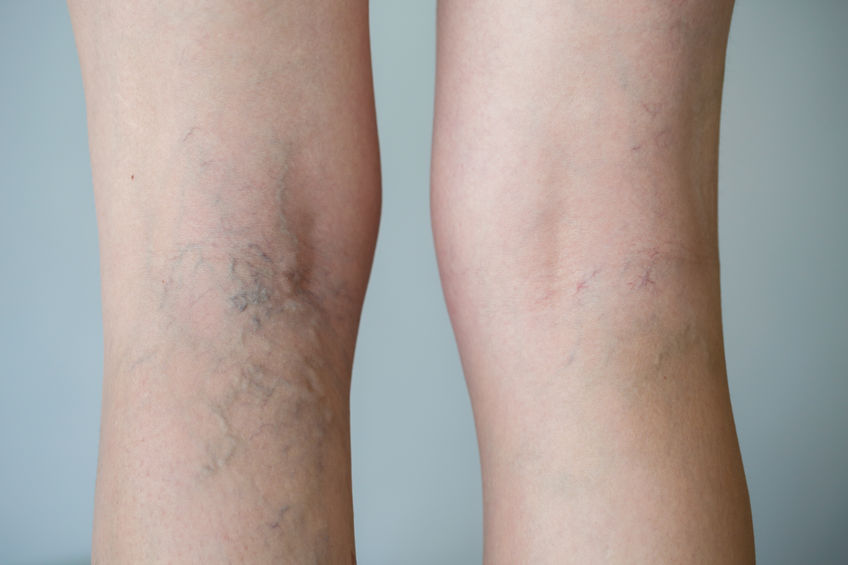Ignore varicose veins? What can happen?
When you ignore varicose veins, they can burst and bleed. Read this article to know about hidden dangers of varicose veins. Read more
Arteriovenous (AV) fistula surgery is a procedure that connects an artery to a vein for dialysis. Learn more about an arteriovenous (AV) fistula surgery for dialysis in Chandigarh.
Procedure Name AV Fistula
Surgery Type open
Hospital Stay Nil (Outpatient)
Duration of Surgery 1 to 2 Hours
Type of Anaesthesia Local Anesthesia/ General Anesthesia
Arteriovenous fistula surgery is a procedure that connects an artery to a vein for dialysis (a procedure to remove waste and toxins from the body when the kidneys are not functioning properly). The AV Fistula acts as an access point for the dialysis machine. A fistula surgery for dialysis is a good solution in the long run for treating chronic kidney diseases. AV fistulas are most commonly created on the hand. A vascular surgeon in Chandigarh performs the AV fistula surgery as an outpatient procedure. It is done under general anesthesia; you can usually go home the same day.
The arteriovenous fistula is an artificial connection created for dialysis. The procedure for creating this fistula is known as AV fistula surgery for dialysis. AV fistula forms the access point for the dialysis machine. An AV fistula for dialysis is typically placed in the arm, near the elbow or wrist. With the creation of an AV fistula, blood flows into the vein from the artery. This increases the amount of blood flowing in the vein, leading to a subsequent increase in blood pressure. The veins are thus enlarged, making them capable of delivering the blood required for dialysis. After the AV fistula surgery, the veins require about 6 to 8 weeks to get wider and thicker; after this period, the fistula can be used for dialysis. This process is termed ‘maturing.’ Once the AV fistula is matured, the dialysis procedure can be commenced. Hence, dialysis with AV fistula's help must be a planned procedure. It cannot be used for emergency dialysis.
Most surgeons prefer the AV fistula for dialysis to other access points. This is because fistula dialysis problems are seen less in AVF dialysis. AV fistula lasts longer, is less prone to infection and clotting, and has better results.
Sometimes the surgeon may place an AV graft in the arm for dialysis. Unlike an AV fistula, an AV graft is a synthetic tube used to surgically connect the artery and the vein. The tube helps to redirect blood from the vein into the artery. An AV graft for dialysis functions in the same way as an AV fistula for dialysis.
There are three types of AV Fistula surgery for dialysis, depending on the artery and veins involved.
AV fistula surgery in Chandigarh is recommended as part of a long-term treatment plan for end-stage renal disease. End-stage renal disease is characterized by renal failure and the inability of the kidneys to filter out the toxins and waste products in the blood. This is seen in the following conditions-
AV fistula surgery for dialysis is an outpatient surgery done under general or local anesthesia. Here are the pre-procedure details to help you prepare for the surgery-
Creating an AV fistula for dialysis is a procedure that takes about 1 to 2 hours.
AV fistula surgery is usually done as an outpatient procedure. You can go home once the effects of anesthesia have worn off. Here is what happens after arteriovenous fistula surgery for dialysis.
Here are some key things to keep in mind to avoid complications following a fistula surgery for dialysis-
Arteriovenous fistula for dialysis is a procedure that greatly benefits people suffering from end-stage renal disease who need hemodialysis for survival. However, as with all procedures, AV fistula surgery also has its share of risks. You must be aware of all the risks and benefits before you sign up for this surgery.
Surgery can be a daunting aspect, and feeling anxious is absolutely normal. The massive amount of information you can get from the internet may confuse you even more. This is where Medfin can help. Leave us the hefty task of finding the best hospital, the finest doctor, and the latest procedure at the lowest cost. Let us take charge while you sit back and focus on your health and recovery. Think surgery! Think Medfin!

After my consultation with the doctor, MEDFIN representative got me a fixed package cost that included my mothers initial tests, surgery cost. They also gave me stockings free for Rs. 3000 post the surgery. They kept up their promise they made

It varies from person to person. It must be worn at all times (except for eating and bathing), even while you are asleep.

Thank you Medfin. They ensured the whole process from selecting a very experienced doctor to offering the latest procedure at a very reasonable price. They also arranged a follow up post my surgery with the doctor to ensure my recovery was on track. Thank you for being there throughout

Need Surgery? Think Medfin - The surgery experts

Those who are above the age of 40 and have other genetic factors that can contribute as risk factors must go for annual eye exams. e.g. Family history of retinal disease, heart disease patients, and metabolic diseases like diabetes.
Booking completed
05:30 PM, WedGet access to modern surgical techniques that ensure quicker recovery and better outcomes
Handpicked by Medfin our expert doctors are trained in the latest minimally invasive procedures
Medfin helps you save upto 50% on your surgery expenses
Get access to modern advanced technology

When you ignore varicose veins, they can burst and bleed. Read this article to know about hidden dangers of varicose veins. Read more

When you google “Stages of Varicose Veins” or ask doctors or other people, you will get different answers from different sources. Read more

Damaged veins that can appear on the surface of the face or legs. Symptoms, treatment of Spider Veins. Prevention methods. Treatment options. Read more

